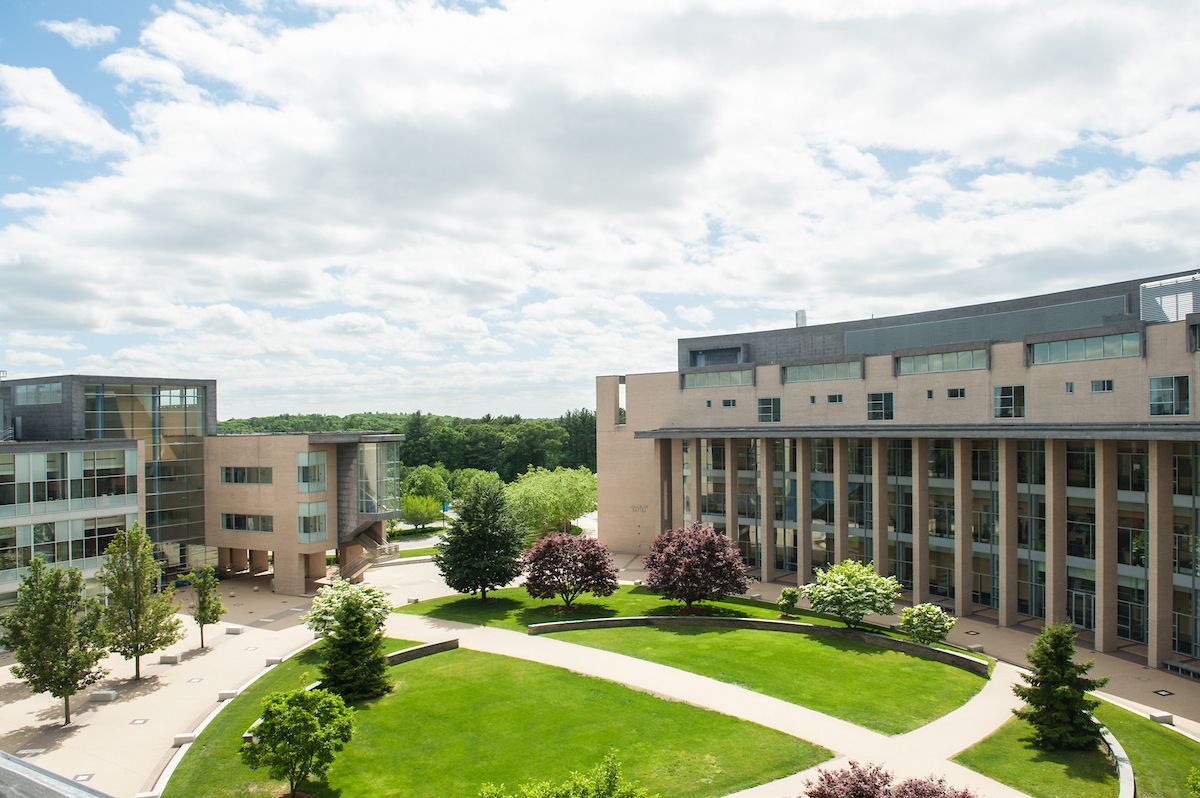Gold Partner Franklin W. Olin College of Engineering offers insight into first year enrollment trends

This piece was written in response to the October 23, 2024 New York Times article, “Freshman Enrollment Appears to Decline for the First Time Since 2020.”
The question of access to college is one that is not unique to our time but has grown in its presence as various factors compile to make it more apparent than ever. The NYT article “Freshman Enrollment Appears to Decline for the First Time Since 2020” makes note of this, highlighting how these challenges are especially true for historically underrepresented students. At Olin College of Engineering, we’ve been aware of this trend and have been working to address it through direct work with CBOs like Chicago Scholars.
As a small institution, Olin is flexible, quick-to-adapt, and able to pivot when enrollment markers are evaluated. What this most recent application cycle has told us specifically is that many young scholars are facing two major obstacles to enrollment that are out of their control but force their hand when deciding whether to apply to college or not.
- ’24 FAFSA Challenges
- ROI / Promise of the Future
The first, which likely impacted low-income families most significantly, will hopefully be worked out in the coming cycle and the roadblocks that hindered folks from applying will (fingers crossed) be removed. We assume that students felt it was not wise to immediately enroll anywhere without a better grasp of their financial aid offerings and as such, stepped back momentarily or entirely. This ephemeral issue should cease to inhibit enrollment in the future, but we are keeping an eye on the developments. We find that clear communication about our financial aid processes can be reassuring to prospective students and their families, and our small size allows us to respond directly to questions or concerns as they arise.
The second, a more prescient trend, is students questioning the ROI, or return on investment, of higher education. And why shouldn’t they? With mounting student loans and difficult job markets, it’s a troubling scenario for those seeking a college degree. They wonder, will it all be worth it?
At Olin, we believe our project-based learning curriculum offers students peace of mind in this realm by instilling key teamwork, executive function, and leadership skills that translate immediately to the workforce. As such, a solid engineering background with these attributes at its core does not require additional degrees to be competitive in today’s job market, allowing students to put their Olin degree to use immediately upon graduation. Our push for outside the classroom learning opportunities like internships and research also strengthens the appeal of an Oliner’s resume to prospective employers. Unfortunately, this immediate ROI isn’t true for all academic programs or majors, thus students may feel the high price tag of a college degree isn’t worth the investment. This could foster disillusionment with higher education overall, increasingly so from those facing additional barriers to learning, resulting in the figures the NYT article addresses.
In the case of FAFSA, Olin has ensured our Financial Aid team could offer our current and prospective students as much support as possible, while staying abreast of any developments from the Department of Education. In the case of FAFSA, Olin has ensured our Financial Aid team could offer our current and prospective students as much support as possible, while staying abreast of any developments from the Department of Education.
And with the second point of concern, we’ve been addressing this for years through those CBO connections mentioned earlier. Information on our website or during our on-campus events is great, but connecting with those directly in the community is even better. Not only do we aim to educate more students about Olin’s offerings, but we also hope to build the toolkit of CBO counselors so they are best prepared to advise students who may otherwise be unable to find the answers on ROI they are looking for.
Collaborations like counselor information events, student visits (both on-campus and virtual), financial aid town halls, and open houses can deliver this insight in several accessible formats. These such offerings (quite standard on most campuses) help connect CBOs to their local colleges and those across the country. Higher education institutions can increase the attractiveness of these outlets or reach out and make connections directly to support prospective students in the best way they see fit. Meanwhile, we are always looking to grow engagement with those on the counseling side of college process and the students they serve.
Accordingly, we see our relationship with Chicago Scholars as a beneficial two-way street where we can offer insight and gain great knowledge in return. When institutions like ours collaborate and grow for the benefit of students, especially those who may not have access to inside information otherwise, we’re directly combating the concerns the NYT points out and working toward a higher education landscape that is shifting for the betterment of the next generation of learners and leaders.